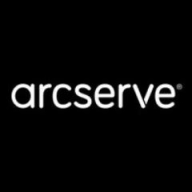

Arcserve UDP and Druva Phoenix compete in the data protection and disaster recovery space. Arcserve UDP appears to have the upper hand in pricing and support, appealing to cost-conscious businesses, while Druva Phoenix stands out with advanced features for enterprises prioritizing comprehensive capabilities.
Features: Arcserve UDP delivers robust backup and recovery solutions with a hybrid data protection strategy, including powerful deduplication for storage efficiency, and virtual standby capabilities. Druva Phoenix focuses on cloud-centric data protection, offering superb scalability, automated disaster recovery, and an easy-to-use interface for streamlined cloud deployments.
Room for Improvement: Arcserve UDP could enhance its cloud-native features, improve integration with various platforms, and address some reliability issues. Druva Phoenix might benefit from expanded support beyond VMs for ransomware protection, better leveraging AI for analytics and backup management, and more robust community support resources.
Ease of Deployment and Customer Service: Arcserve UDP ensures a seamless setup for traditional IT environments with excellent support for hybrid deployments. Druva Phoenix offers a straightforward, fast cloud deployment process with minimal hardware requirements, making it ideal for distributed teams with strong customer service to back it up.
Pricing and ROI: Arcserve UDP is noted for cost-effective setup and good ROI, catering to smaller companies or budget-conscious businesses. Druva Phoenix, with higher pricing, offers advanced cloud capabilities that promise higher ROI for organizations aiming for long-term investment in cutting-edge technology.
| Product | Market Share (%) |
|---|---|
| Arcserve UDP | 2.1% |
| Druva Phoenix | 1.2% |
| Other | 96.7% |


| Company Size | Count |
|---|---|
| Small Business | 24 |
| Midsize Enterprise | 10 |
| Large Enterprise | 9 |
| Company Size | Count |
|---|---|
| Small Business | 6 |
| Midsize Enterprise | 3 |
| Large Enterprise | 2 |
Druva Phoenix is a comprehensive cloud-based data protection and management solution that enables organizations to securely backup, recover, and manage their data across endpoints, physical servers, virtual machines, and cloud applications. With its scalable and flexible architecture, Druva Phoenix simplifies data protection and eliminates the need for traditional backup infrastructure.
By leveraging the power of the cloud, Druva Phoenix offers organizations a cost-effective and efficient way to protect their critical data. It provides automated backup and recovery capabilities, ensuring that data is always protected and easily recoverable in the event of a disaster or data loss. With its global deduplication and compression technology, Druva Phoenix minimizes storage requirements and reduces costs.
Druva Phoenix also offers advanced features such as point-in-time recovery, allowing organizations to restore data to a specific point in time, and granular file-level recovery, enabling users to recover individual files or folders. Its intuitive web-based console provides a centralized view of all protected data, making it easy to manage and monitor backups across the entire organization.
In addition to data protection, Druva Phoenix offers comprehensive data management capabilities. It enables organizations to gain insights into their data through advanced analytics and reporting, helping them make informed decisions and optimize their storage resources. Druva Phoenix also supports legal and compliance requirements by providing eDiscovery capabilities and ensuring data is retained and disposed of according to regulatory guidelines.
With its cloud-native architecture, Druva Phoenix offers organizations the flexibility to protect and manage their data across a wide range of environments, including on-premises, remote offices, and cloud applications such as Microsoft 365 and Google Workspace. It seamlessly integrates with popular cloud platforms like AWS and Azure, allowing organizations to leverage their existing cloud investments.
We monitor all Disaster Recovery (DR) Software reviews to prevent fraudulent reviews and keep review quality high. We do not post reviews by company employees or direct competitors. We validate each review for authenticity via cross-reference with LinkedIn, and personal follow-up with the reviewer when necessary.